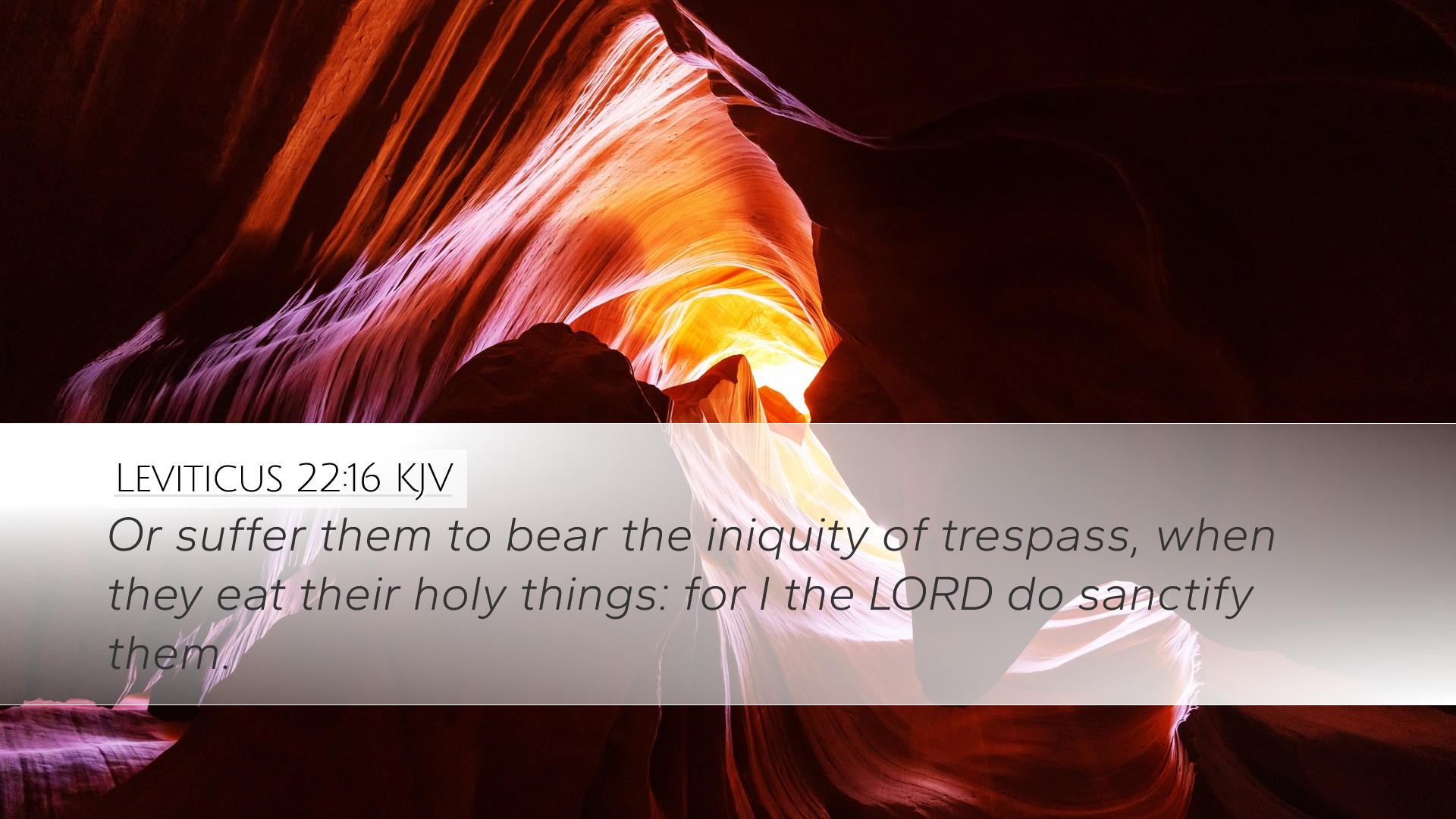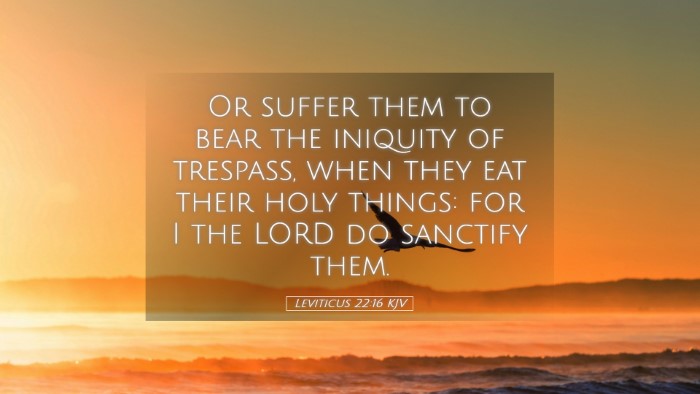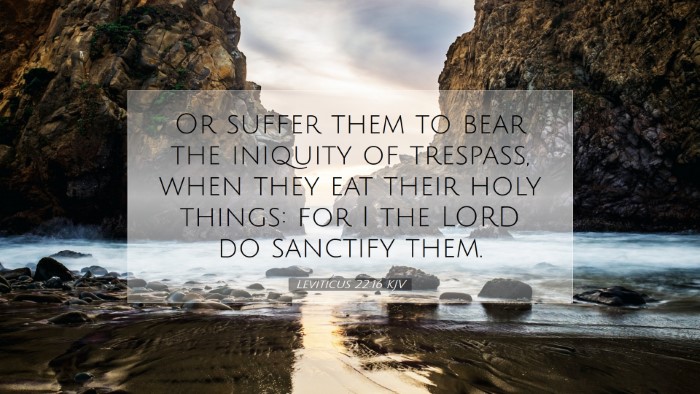Commentary on Leviticus 22:16
Verse: "And let them not profane the holy things of the children of Israel, which they offer unto the LORD; or suffer them to bear the iniquity of trespass when they eat their holy things: for I the LORD do sanctify them."
Introduction
This particular verse from Leviticus serves as a critical reminder of the sanctity surrounding offerings made to God and the stringent requirements for holiness expected from those who serve. Several esteemed Bible commentators provide profound insights that enhance our understanding of this text, particularly regarding its implications for purity, holiness, and the nature of God’s covenant with Israel.
Observations from Matthew Henry
Matthew Henry emphasizes the holiness required of both the offerings and the priests who present them. He observes that offering something unclean not only defiles the sacred act but also communicates a lack of reverence for God.
- Holiness of Offerings: Henry suggests that the offerings presented by the Israelites were not mere acts of ritualism but were imbued with significant spiritual consequences.
- Responsibility of the Priests: The priests bear the heavy responsibility of preserving the sanctity of the holy things. Their role as intermediaries between God and the people is underscored by the necessity of their own holiness.
- Consequences of Profaning Holiness: Henry warns of the dangers of misappropriating holy things, stating that such actions could lead to spiritual calamity for both the individual and the nation.
Insights from Albert Barnes
Albert Barnes provides a detailed exegesis on the ramifications of profaning holy things. According to Barnes, this verse serves as a safeguard against sin and serves to delineate the seriousness with which God regards His covenant.
- Divine Sanctification: Barnes notes that God's declaration of sanctifying the people highlights that sanctification is an act of God, bestowed upon His chosen ones.
- Intercession and Accountability: The verse underscores that unclean individuals, specifically priests, should not bear the iniquity of trespass unless they maintain the integrity of their sacred duties.
- Magnitude of Offerings: Barnes explicates that the offerings to the LORD ought to reflect purity and intentionality; anything less would insult the covenant relationship God has established with Israel.
Reflections from Adam Clarke
Adam Clarke's commentary addresses the theological implications of this directive. Clarke argues that this command not only outlines human action but also reflects on God’s nature of requiring purity and righteousness.
- Symbolism of Offerings: Clarke suggests that the offerings are symbolic representations of the worshippers' hearts, and therefore must be free from blemish.
- Penalties of Iniquity: Clarke warns that failure to observe these commands could lead to a burden of sin that impedes both individual and communal worship.
- God’s Holiness and Justice: Clarke highlights the justice of God in sanctifying His people, indicating that His expectations are not capricious but reflective of His holy character.
Practical Applications for Today’s Believers
The admonitions of Leviticus 22:16 serve a dual purpose: they reflect on the historical context of the Israelites and present timeless principles pertinent for contemporary believers.
- Understanding Our Offerings: Believers are called to examine the nature of their own offerings to God—whether in the form of service, worship, or resources—and to ensure that they are offered with a pure heart.
- The Role of Spiritual Leadership: Pastors and church leaders should recognize their impact in maintaining the sanctity of worship and the importance of personal holiness.
- Community Accountability: The communal aspect of holiness indicates that believers are responsible for the spiritual integrity of their community, fostering an atmosphere of reverence and respect for God’s presence.
Conclusion
Leviticus 22:16 encapsulates the essence of how God views holiness in worship and the responsibilities that accompany spiritual service. By approaching the text through the lenses of respected theologians, we glean deeper insights into God’s expectations and the theological ramifications of living a life set apart for Him.


